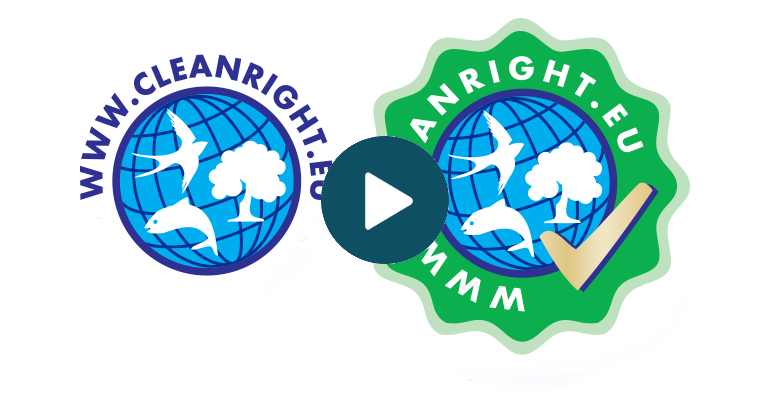The detergents and maintenance products industry has long been committed to improving the sustainability of its products. Most of the companies that make these products and sell them in Europe have signed up to the industry’s sustainability scheme, called the Charter for Sustainable Cleaning.
How the Charter works
Companies who sign up to the Charter commit to continuous improvement both in the manufacturing and in the formulation of their products. Advice to promote sustainable use of products is also provided making it thus a very comprehensive sustainability scheme including annual reporting and independent verification.
Sustainability measures tracked include among others energy use, CO2 emitted, water use, the amount of recycled content in packaging and the reduction of the use of poorly biodegradable materials. Cleaning performance is also evaluated, because it’s no good having a low impact cleaning product if it does not work. Results are independently verified.
Carbon footprint and packaging reduced
The Charter has been running since 2005. In 15 years, Charter companies have cut CO2 emissions by 40% per tonne of production, well ahead of the target set by the EU after the Paris Agreement in 2015 to cut greenhouse gas emissions by at least 40% by 2030. Packaging has been reduced by 32%.
The Charter itself is also regularly revised and upgraded by A.I.S.E., the European detergents and maintenance products industry association which developed the scheme. For example, a new goal introduced in 2019 is for companies to ensure that all packaging is either recyclable, reusable or compostable.
The industry sustainability mark
Companies which meet – in addition to the manufacturing requirements – the sustainability product standards can use the Charter mark.
Consumers can be assured that products carrying the product mark meet high standards for environmental safety, minimise waste and provide clear and transparent information on how to use products in a more sustainable way. These include:
- efficient use of resources (for example by promoting more compact products)
- the environmental safety profile of the formulation (based on strict and conservative exposure assessments)
- the optimal use of packaging and content of recycled material
- the cleaning performance of the product
- the provision of best use tips to promote sustainable consumption
You can then be assured that this mark helps you choose the right detergent and maintenance products in terms of high sustainability standards.
Take care how you clean
All of this is good news, but did you know that most of the environmental impact of products like laundry and dishwashing detergents happens when you use them, because of the energy used in the cleaning process?
So, it is also really important to keep trying to be more sustainable in how you clean at home.
Look for products that carry the Charter for Sustainable Cleaning logo, follow the sustainable use tips on the label and check out all the other useful tips on this site.
For all details on the charter criteria and principles, please visit: www.sustainable-cleaning.com
